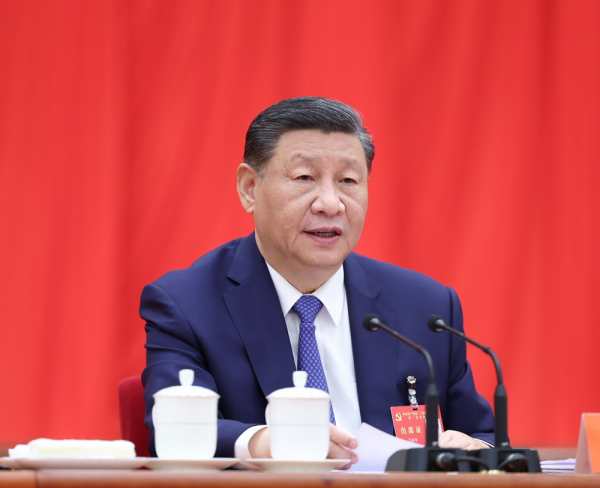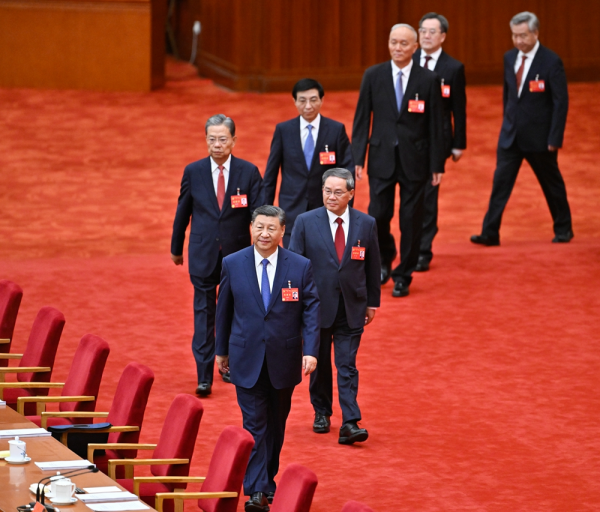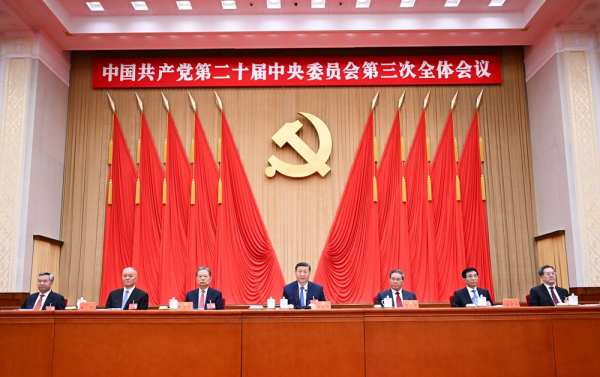Third Plenum
Third Plenary Session of the 20th CPC Central Committee


Lead: China unveiled a series of reform measures at the recent third plenary session of the 20th CPC Central Committee that could boost global cooperation amid mounting international challenges.
‘‘As the plenum kicked off, the International Monetary Fund (IMF) revised China's 2024 economic growth forecast to 5% in its World Economic Outlook update on July 16. The IMF highlighted that Asia's emerging market economies, particularly China and India, remain the primary engines of the world economy, accounting for nearly 50% of global growth. The revision was attributed to a new program unveiled in March by the Chinese government to boost large-scale equipment upgrades. The IMF described this initiative as "a step in the right direction," noting its potential to expand investment, develop new quality productive forces, and stimulate consumption and growth. The program has received praise from scholars and international organizations alike.
Remarkably, the plenum concluded on July 18 with the release of a communique and the adoption of a resolution on further deepening reform comprehensively to advance Chinese modernization. As highlighted in the communique, the CPC Central Committee adopted systematic reform plans emphasizing high-quality economic development, ensuring and improving people's well-being, supporting all-round innovation, deepening reform in ecological conservation and pursuing high-standard opening-up.
The new reforms are expected to generate growth opportunities, address challenges related to China's social and economic progress, and lay a foundation for China to become a modern socialist country by the mid-century. They are likely to benefit not only China but also the rest of the world. For more than four decades since its reform and opening-up, China has been a significant source of trade, investment, and technological innovation globally. The third plenary session of the 11th CPC Central Committee in 1978, which marked the beginning of these reforms under Deng Xiaoping, transformed China from a poor country into the world's second-largest economy and created enormous dividends for the global economy.
According to the World Bank, China's rapid economic growth has lifted nearly 800 million people out of extreme poverty over the 40 years since it began its reforms. China achieved the poverty reduction goal set in the U.N. 2030 Agenda for Sustainable Development10 years ahead of schedule. This effort accounted for nearly three-quarters of the global reduction in extreme poverty during this period. It is worth knowing that during this time, China has also transformed into a steadfast engine of global economic growth.
More specifically, in just a decade, China's share of the global economy jumped from 11.3% in 2012 to over 18% in 2022, with an average annual contribution to global economic growth exceeding 30%. To add more, at present, China plays a vital role in global industrial and supply chains, with its share of the global manufacturing industry rising from 19% in 2010 to 34% in 2023.
Over the past 46 years, China's rapid transformation from one of the world's poorest nations to a major economic power has featured increased global cooperation, benefiting more and more countries and regions in the world. During this period, China offered far-reaching solutions to address global challenges, foster economic growth and promote open development, contributing to common prosperity and what it calls a community with a shared future for mankind. Such efforts range from its 2001 World Trade Organization entry, which helped eliminate trade barriers and propelled China to become the world's largest exporter and trading economy, to its introduction of initiatives like the Belt and Road Initiative (BRI), the Global Development Initiative, the Global Security Initiative, and the Global Civilization Initiative.

China has remained steadfast in its commitment to opening up to the world, with this approach described as a defining feature of Chinese modernization. The documents adopted at the third plenum have emphatically outlined plans to steadily expand institutional opening-up, deepen structural reforms in foreign trade, further reform management systems for inward and outward investment, improve planning for regional opening-up, and refine the mechanism for high-quality cooperation under the BRI. At a time when the world is witnessing rising economic fragmentation and protectionism fueled by escalating geopolitical conflicts, China's strategy to further open up and enhance global cooperation is all the more crucial for addressing global challenges.’’ – Excerpt from the Ghana Centre for China Studies (GCCS) publication titled ‘‘China's new reforms will boost global cooperation’’ published in a joint collaboration with China’s Diplomacy in the New Era website, the official website of the Chinese President Xi Jinping.
OUR PUBLICATIONS